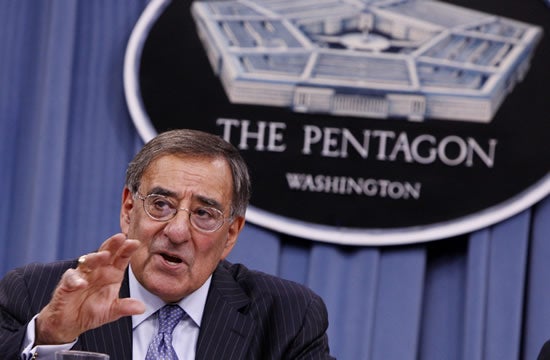Protecting the Grid: DOD Fortifies Itself Against Threat of Cyber Attacks
Suzanne El Sanadi /
Secretary of Defense Leon Panetta recently made the disturbing announcement that the U.S. military is currently unprepared for a well-executed cyber attack.
His call to rapidly implement a transitional cyberwarfare intelligence framework—known as Joint Staff Transitional Cyberspace Operations Command and Control Concept of Operations—should be strongly considered. The Department of Defense’s (DOD) current plan to achieve an effective system of standardized cyber operations should lead to increased military capabilities in both the offensive and defensive cybersecurity realms.
Almost all conventional military systems are now run by electronics and computer systems. This new cyber battleground calls for a very specific type of warrior to navigate technological advances. The modern warrior must not only be adept at performing his or her duties but also have an understanding of the cyber realm.
While cyber warfare has primarily remained under the radar, America’s recently revealed covert cyber operation in Iran shows its capabilities and consequences for traditional warfare. Other countries are also rapidly honing their skills to keep pace with the developing warfare realm.
U.S. federal agencies have been the targets of many cyber attacks since 1998. Thus, while the U.S. maintains military supremacy in traditional capabilities such as weapons and manpower, it needs to rapidly step up to the challenge of countering cyber attacks. According to Panetta, “The speed and intensity with which adversaries could exploit vulnerabilities in the DOD Global Information Grid jeopardizes the Department’s ability to execute successful military operations.”
The creation of Joint Cyber Centers (JCC) is part of the first phase of strengthening DOD’s Global Information Grid. In an effort to integrate cyber systems within the traditional military framework, the JCCs grant geographic combatant commanders more autonomy while connecting them to U.S. Cyber Command (CYBERCOM). This provides a strong support system where trained cyber experts, both from CYBERCOM and those already stationed at the outposts, are working together at the respective combatant commands to assist with the cyber aspects of military operations and the protection of each command’s network.
The outcome of implementing JCC is an increase in the security of the DOD’s network and a strengthening of each individual command’s offensive and defensive military operations.
Suzanne El Sanadi is currently a member of the Young Leaders Program at the Heritage Foundation. For more information on interning at Heritage, please click here. http://www.heritage.org/about/internships-young-leaders/the-heritage-foundation-internship-program

